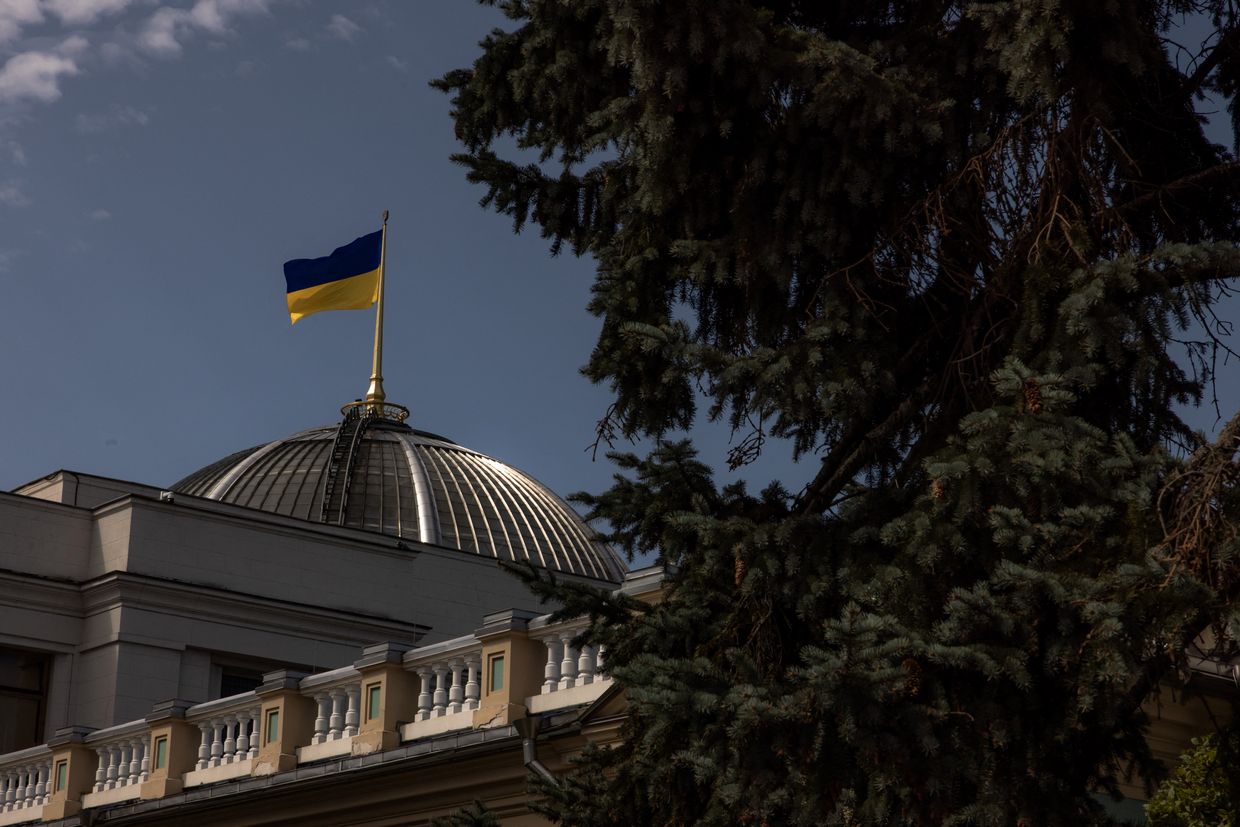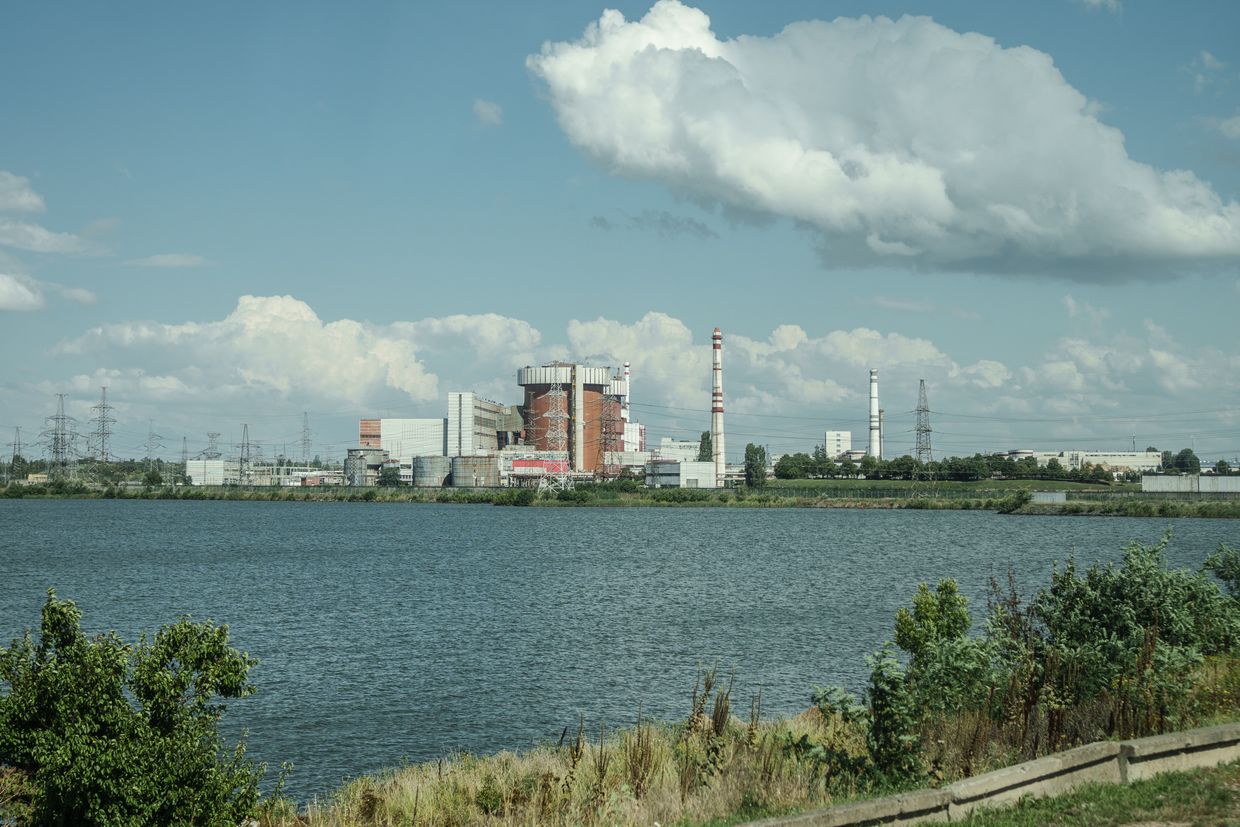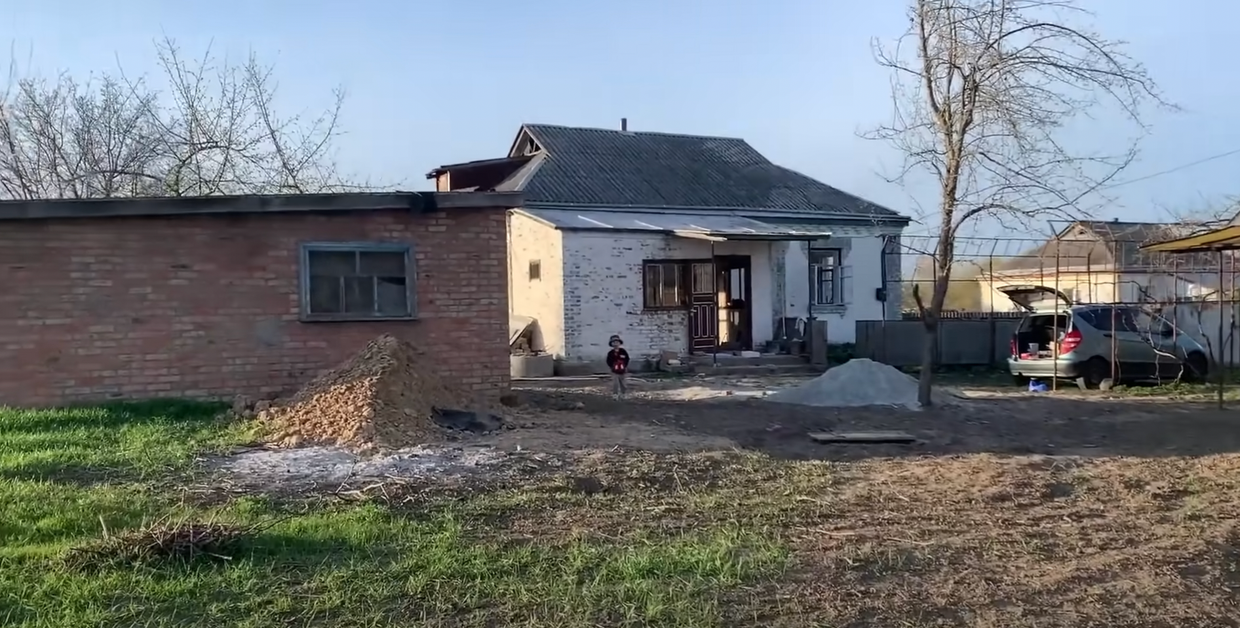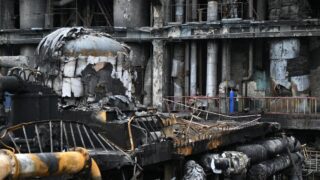
Ukraine Business Roundup — The fight over higher taxes continues
The following is the Oct. 8, 2024 edition of our Ukraine Business Roundup weekly newsletter. To get the biggest news in business and tech from Ukraine directly in your inbox, subscribe here.
Public reactions, particularly from the business community, to increasing taxes continue to mount as the bill makes its way through the Verkhovna Rada, Ukraine’s parliament.
Where the law’s at: Ukraine’s parliamentary Tax Committee approved a draft law on increasing taxes after it passed in the first reading last week.
The draft law’s key provisions haven’t changed, lawmaker and committee member Yaroslav Zhelezniak said.
Among those provisions are an increase of the added military tax from 1.5% to 5%, higher taxes for self-employed people, a 50% tax on bank profits, and a 25% tax on financial institutions.
The draft law will be considered in parliament for a second reading this week. Over 1,388 amendments have been submitted, according to Zhelezniak.
As a reminder: The country is facing a $35 billion budget deficit next year, and as Russia’s war continues in its third year with no end in sight, the country needs to find funding to keep its economy afloat and finance its war effort.
What they’re saying: Ajax Systems founder and well-known business figure in Ukraine Aleksandr Konotopskyi has taken to social media, calling on the government to do more to go after corrupt businesses that evade taxes.
“It would be better if you left the economy alone. While there is still something left to leave alone at all,” Konotopskyi said in a Facebook post.
In comments to Forbes, investment fund Dragon Capital head Tomas Fiala agreed with Konotopskyi, saying that the government has done too little too late to raise the necessary funds to finance the country and its defense.
“The government needs to do its part and finally show zero tolerance for corruption, shut down the shadow economy, and make sure everyone pays their fair share of taxes,” he told Forbes.
Fiala believes the best way to increase taxes would be through increasing the value-added tax — an idea supported by the Finance Ministry and International Monetary Fund but rejected by President Volodymyr Zelensky’s office and Cabinet of Ministers.
Other business people interviewed by Forbes echoed these sentiments and called on the government to focus on reforms, particularly in customs.
A law reforming the sector was recently passed in parliament and is waiting to be signed by the president. Pushing through customs reform may have been a way for the government to quell some of the concerns of business, although not to much avail.
“It is not necessary to raise taxes for white businesses but to fight the more than 40% of those who work in the shadows. They have a competitive advantage due to tax evasion,” Oleksandr Sokolovsky, CEO of fabrics maker Textile-Contact.
Read more about the proposed tax hike — the first since the start of the full-scale invasion — here.

Ukraine wants foreign observers near nuclear plants
As the cold season sets in and fears rise that Russia is planning to go after Ukraine’s nuclear power plants — the country’s main energy source — Kyiv says it has put forth an idea to place international observers near its three operational nuclear plants.
An Energy Ministry official said at an event in Kyiv last week that as Russia gears up to attack the infrastructure, like the substations connecting the plants to the country’s power grid, observers around the plants could help ensure their safety.
The idea may be far-fetched and so far, the agency has made no public indication it will send anyone.
Ukraine’s ask isn't without grounds — Russia already attacked substations near Ukraine’s western Rivne nuclear power plant at the end of August, causing blackouts, and recently, on Oct. 1, substations connected to the Russian-occupied Zaporizhzhia nuclear power plant, cutting off a power line to the facility.
Read more here.

AeroVironment to produce kamikaze drones in Ukraine
The U.S.-based AeroVironment signed an agreement with a Ukrainian company to localize its production of Switchblade 600 loitering munitions, marking the latest of several recent agreements between Ukrainian and foreign companies to produce weaponry in Ukraine.
The Ukrainian company was not named because of security reasons.
The agreement was signed on Oct. 1 during the DFNC2 International Defense Industries Forum in Kyiv, where nearly 300 companies from over 30 countries attended.
The Switchblade 600 is a loitering munition used to strike targets by crashing into them. They have a flight range of 40 kilometers or more and can stay in the air for over 40 minutes.
Brett Hush, a senior vice president at AeroVironment who signed the agreement in Kyiv, praised the Switchblade's performance, adding that "with the support and feedback from Ukraine, it'll be even better."
Read more here.

Demand for rural homes growing in Ukraine
Ukrainians are increasingly moving from cities to rural areas, as they seek more space and security, Liga.net reported.
Demand for rural housing started to rise during the Covid-19 pandemic and has only increased since the start of the full-scale invasion. Contrary to high-rise apartment buildings, individual homes can run on alternative energy sources, insulating them from blackouts.
According to Liga.net, demand has increased sharply in the country’s central regions, which includes the Kyiv area, recovering to 2021 pre-war levels. Housing prices in the Kyiv region have increased 50%, Liga.net said.
Instead of buying new homes, Ukrainians are opting to renovate older houses as it’s more affordable. In line with the trend, several bloggers have cropped up on social media in the country offering tips on rural home renovations.
What I'm watching
Ukraine’s government is planning on introducing a model of what’s called “economic reservation” to protect certain employees from mobilization. While some people are already protected from military service (energy sector workers, for example), the move would increase the number of those eligible for reservation. The issue is extremely sensitive and divisive, and questions remain about how people across society, particularly those serving, will react.
What else is happening
Ukraine, Slovakia to create joint energy hub, Shmyhal says
The new energy hub envisages the use of existing gas storage facilities and cooperation in the field of nuclear energy, Prime Minister Denys Shmyhal said at a press conference with his Slovakian counterpart Robert Fico on Oct. 7.
EU considering path to overcome Hungary’s veto on $6.6 billion to Ukraine, Bloomberg reports
The EU is considering allowing member states to make voluntary contributions to the European Peace Facility, bypassing the need for unanimous support to disburse funding to Ukraine, Bloomberg reported, citing unnamed officials familiar with the matter.
Russia strikes civilian vessel loaded with corn for export from Ukraine
The bulker attacked on Oct. 6 was loaded with about 6,000 tons of Ukrainian corn intended for export, the Infrastructure Ministry said. The ship’s owner, Greece-based AK shipping, confirmed Russia had attacked the ship.
Ukraine’s gas storage system still fully operational despite Russian attacks, Naftogaz CEO says
Nonetheless, foreign traders have injected only 0.5 billion cubic meters of gas into Ukraine’s gas storage facilities, down from 2.5 billion cubic meters in 2023, Naftogaz CEO Oleksiy Chernyshov told the Wall Street Journal in an interview published on Oct. 4.
More than 200 foreigners have applied for e-residency, Digital Transformation Ministry says
The country launched an e-residency program last week, giving citizens of India, Pakistan, Thailand, and Slovenia remote access to services in the country, mainly the ability to open a business and bank account and pay taxes at a favorable rate. Read more about it in last week’s roundup.














